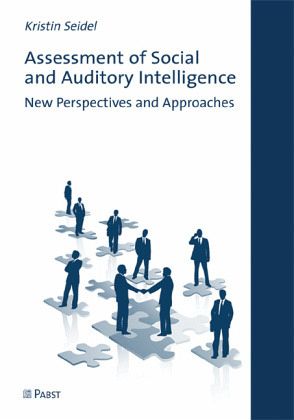Nicht lieferbar

Assessment of Social and Auditory Intelligence
New Perspectives and Approaches
Versandkostenfrei!
Nicht lieferbar
The concept of intelligence has been a subject of great controversy. For many years its conception as strict classical academic intelligence has been broadened to include emotional intelligence, social intelligence, auditory intelligence and others. These constructs are particularly important in practice. Social intelligence, for example, is considered to be among the most success-relevant characteristics in work and in private life. However, many of these new constructs have not been assessed appropriately and lack empirical evidence. This book deals with the scope, theories and empirical res...
The concept of intelligence has been a subject of great controversy. For many years its conception as strict classical academic intelligence has been broadened to include emotional intelligence, social intelligence, auditory intelligence and others. These constructs are particularly important in practice. Social intelligence, for example, is considered to be among the most success-relevant characteristics in work and in private life. However, many of these new constructs have not been assessed appropriately and lack empirical evidence. This book deals with the scope, theories and empirical research of social and auditory intelligence and relates them to academic intelligence, personality, and working memory. The development and use of two novel multimedia social and auditory intelligence tests is described. Empirical studies substantiate the idea that core components of social and auditory intelligence are unique and deserve increased importance in theories and tests. The book integrates the tests' findings into a broader perspective of intelligence and discusses practical applications.



